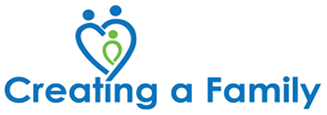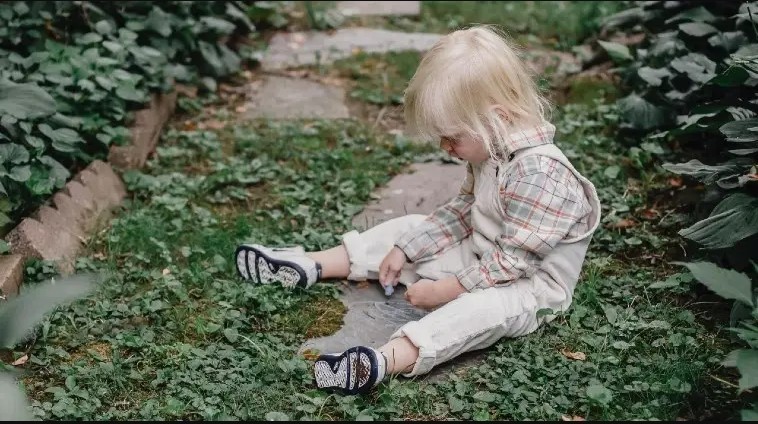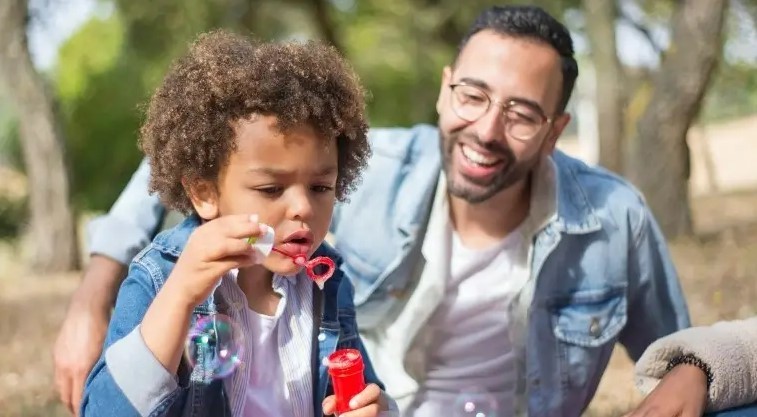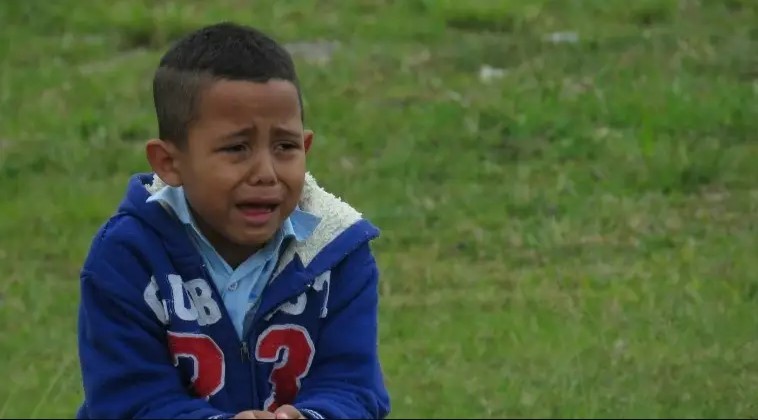DCS Foster Parent Support Program

The Office of Training & Professional Development is excited to announce a new Support Program designed specifically for foster, kinship, and adoptive families. Foster, kinship, and adoptive families are invited to attend any of the ten (10) sessions offered but are not required to attend all sessions. Utilizing curricula from Creating A Family, the Support Group will focus on a different topic each session.
Each session will engage families through short guided lessons, open discussion, and resources to help support foster, kinship, and adoptive families. Families in any year of fostering are invited and encouraged to attend these sessions.

This curriculum will help parents gain an understanding of the 7 core issues in adoption and foster care and how these issues impact all members of the adoption/foster triad.
Parents will leave the support group with a better understanding of the following topics.
- Understand the 7 Core Issues in Adoption and Foster Care and how they impact our children.
- Understand a parent's role in helping the child heal.
- List practical tips to help kids process the 7 core issues.

This curriculum will help parents and caregivers learn what co-regulation is and why it’s vital to instruct children about self-regulation through co-regulation. Parents and caregivers will learn why self-regulation is necessary and how co-regulation builds a child’s foundational skills for eventual self-regulation. It’s vital that parents understand why kids who have experienced trauma tend to struggle with self-regulation. With that information, parents will then learn that co-regulation can help them build healthy attachment with their child. Parents and caregivers will also learn how co-regulation works, along with practical ideas for teaching their children self-soothing skills.
Parents will leave the support group with a better understanding of the following topics.
- How trauma impacts a child’s ability to learn self-regulation.
- Why co-regulation with a primary caregiver or parent is the best way to teach self-regulation.
- How co-regulation builds attachment and trust with a child.
- What the five steps of co-regulation are.
- How to teach self-soothing in active attachment building.

We all process sensory input differently, but some people are especially sensitive. What might be a minor annoyance for you can be overwhelming and disruptive to someone who struggles with sensory processing issues. This curriculum looks at sensory processing issues and how they affect children.
Parents will leave the support group with a better understanding of the following topics.
- What is Sensory Processing Disorder (SPD)?
- How do you tell if your child is just stubborn or if they have actual sensory issues?
- What should parents do if they suspect their child might have sensory issues?
- What can parents do to help a child struggling with sensory processing issues?

This curriculum will help parents learn important information about helping children heal from sexual abuse.
Parents will leave the support group with a better understanding of the following topics.
- What constitutes sexual abuse of a child.
- The signs or symptoms parents should know if they are concerned that a child may have experienced sexual abuse.
- The protective factors that parents can put into place when welcoming a child into their home if that child has a suspected history of sexual abuse.
- Action steps that parents can take when sexual abuse is disclosed or discovered, that will cultivate a safe space for the child to heal.

Trauma is a hot topic in foster care and adoption, and for good reason. The vast majority of kids who were adopted at an older age or who have spent time in the foster care system have experienced some kind of trauma. However, trauma, and its impacts on children, isn’t always well understood by parents. This curriculum looks at what neglect is, how it can impact children and how parents can determine if a behavior is based in trauma. Most importantly, we look at ways parents can help their children start healing from that early trauma.
Parents will leave the support group with a better understanding of the following topics.
- How does trauma impact children?
- How do you tell if a behavior is based in trauma?
- How can parents help their children integrate the different identities that come from being adopted/in foster care?
- How can parents use behavior charts to help change trauma-based behavior?

Have you ever wondered why a specific behavior by your child drives you crazy? In this curriculum, parents will learn general information about the four basic attachment styles, how those styles form, and how a parent’s attachment style impacts how they parent. Parents will also gain an understanding of their specific attachment style. They will be able to identify the strengths and challenges of that attachment style to develop a healthier, more secure attachment with a child who has experienced trauma. This curriculum also offers practical scenarios that parents commonly encounter and learn how to respond to triggers or frustrations they may experience in parenting, with the goal of moving forward in healthier patterns.
Parents will leave the support group with a better understanding of the following topics.
- The four attachment styles are and how attachment in our family of origin impacts how we parent.
- The attachment styles with which you most identify and how to address the struggles and challenges of that attachment style for parenting your child.
- Practical advice to improve how you interact with your child using common scenarios many families face when raising children who have experienced trauma.
Parents will learn important information about brain development during the tween and teen years. Understanding the specific parts of tweens' and teens' brains that are growing most rapidly in these years will help parents learn how to communicate with their kids. This curriculum offers guidance on when tweens and teens will most welcome a parent's interventions, how to step into that process with them, and how to aid their building of intelligence and gaining experiences that will prepare them for adulthood.
Parents will leave the support group with a better understanding of the following topics.
- Adolescent brain development and the centers of the brain that are growing most quickly.
- Communication and parenting strategies to respect and support their kids' growing independence.
- How to be a balanced parent to maximize your relationship and allow your child to mature to adulthood.

Neglect is the primary reason that children enter the US foster care system. A common form of child abuse, it can cause developmental, cognitive, and social delays, among many other challenging issues. However, many people misunderstand the gravity of neglect and thus downplay its impacts. In this curriculum parents and caregivers will learn what neglect is, how it impacts children, including a definition of parentification, and how to support children to begin the healing process.
Parents will leave with a better understanding of the following topics.
- Neglect: what it is and how it impacts children, both short and long-term
- Parentification: common issues parents experience with parentified kids and how to help a child ease out of a parental role
- Practical tips for helping children begin to heal from neglect

This curriculum offers guidance on when tweens and teens will most welcome a parent's interventions, how to step into that process with them, and how to aid their building of intelligence and gaining experiences that will prepare them for adulthood.
Parents will leave the support group with a better understanding of the following topics.
- Adolescent brain development and the centers of the brain that are growing most quickly
- Communication and parenting strategies to respect and support their kids' growing independence
- How to be a balanced parent to maximize your relationship and allow your child to mature to adulthood

In this curriculum, parents will learn why self-care is so important when parenting kids who have challenging behaviors or come to their homes with a history of trauma. Parents will learn about the realities of compassion fatigue and secondary trauma. In addition to learning how to identify the common barriers that parents face when seeking self-care, they will also learn how to form a plan for meaningful self-care. Parents who are in a significant partnership or marriage are encouraged to prioritize self-care for their relationship.
Parents will leave the support group with a better understanding of the following topics.
- Why self-care is crucial and how to identify the barriers to regular self-care they face
- The definitions of “compassion fatigue, “secondary or vicarious trauma” and how respite care can help
- Why relationship care is also vital for adoptive, foster, or kinship parents who are in a marriage or partnership
- Creative ideas and practical tools for incorporating self-care into their daily lives

With this curriculum, parents will learn how trauma impacts a child’s developing skills and thus how the child behaves. Parents will be introduced to the basics of the Collaborative Parenting model, including why kids engage in challenging behaviors. Parents will gain deeper understanding of the factors that get in the way of children succeeding. Shifting from a perspective of “this child won’t do well,” to a philosophy of “kids do well if they can” is foundational to understanding what children need from their parents to overcome challenging behavior. This curriculum also offers practical examples of the steps of the Collaborative Parenting Model to help them explore which skills a child might lack and how to build those skills.
Parents will leave the support group with a better understanding of the following topics.
- The factors that determine how trauma impacts a child’s developing skills.
- The skills a child might lack or develop late and how that impacts behavior.
- The three steps to the Collaborative Parenting Model and how to implement the steps to build a child’s skills.
| Topic | Date | Time | Facilitators |
|---|---|---|---|
| Helping Children Heal from Trauma and Loss | July 24, 2023 | 5:30pm-7:30pm Central/ 6:30pm-8:30pm Eastern |
Shianne Newell, Felicia Lazarus |
| Attachment | August 17, 2023 | 5:30pm-7:30pm Central/ 6:30pm-8:30pm Eastern |
Andrea Nash, Randi Earley |
| Self Care | September Conference | Felicia Lazarus, Vicki Britton | |
| The Joys and Challenges of Kinship Care | October 30, 2023 | 5:30pm-7:30pm Central/ 6:30pm-8:30pm Eastern |
Vicki Britton, Andrea Nash |
| Managing Expectations | November 16, 2023 | 5:30pm-7:30pm Central/ 6:30pm-8:30pm Eastern |
Andrea Nash, Vicki Britton |
